According to SAMHSA, over 20.3 million people in the U.S. suffer from substance use disorders each year, yet only 11% seek treatment. Many are reluctant to acknowledge their addiction or believe help is unavailable. As a result, most attempt to manage on their own but often fail. Addiction is a medical condition that impairs decision-making, and recovery requires outside help. Unfortunately, misconceptions about treatment and recovery prevent many from seeking the support they need.
Myth 1: You Need to Hit “Rock Bottom” Before Going to Rehab
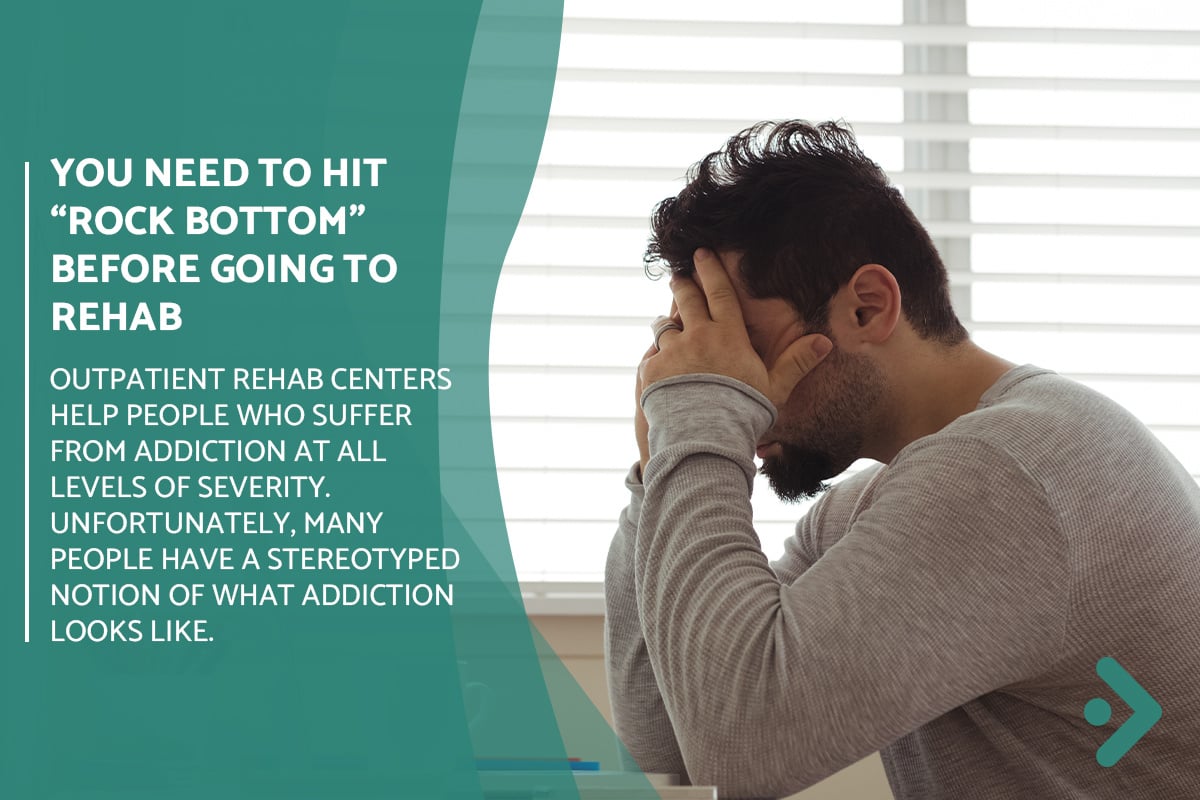
While it is certainly true that many individuals end up deciding to go to an outpatient treatment center after experiencing severe consequences, it is not necessary. In fact, outpatient rehab centers help people who suffer from addiction at all levels of severity.
Unfortunately, many people have a stereotyped notion of what addiction looks like. Popular television shows and movies often show addicted people living in alleyways or dressed in rags.
The reality is that many people who appear to have their lives together suffer from addiction. Substance use disorders, however, tend to progressively get worse. Why wait until you’ve lost everything before getting help? It’s never too early.
Myth 2: Some People Can Manage Their Addictions on Their Own
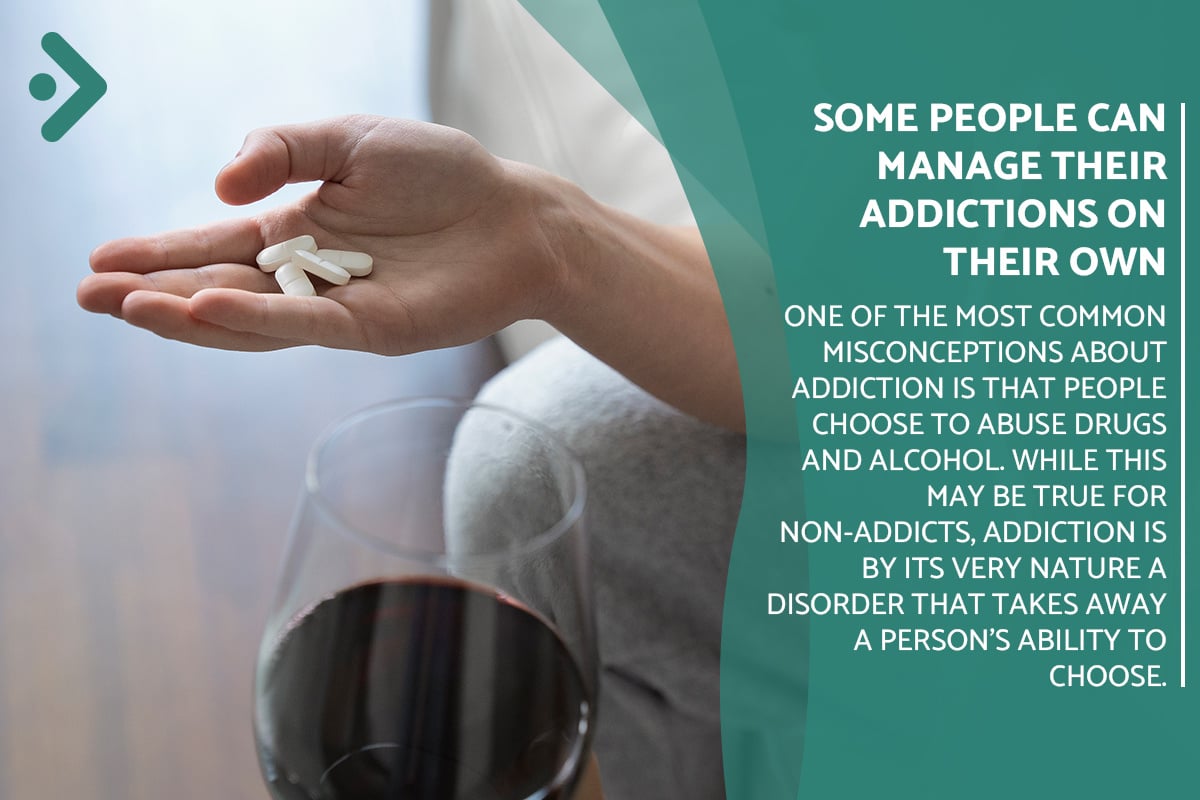
One of the most common misconceptions about addiction is that people choose to abuse drugs and alcohol. While this may be true for non-addicts, addiction is by its very nature a disorder that takes away a person’s ability to choose.
The American Society of Addiction Medicine (ASAM) specifically defines addiction as a chronic disease that affects a person’s brain circuitry. Trying to treat an addiction oneself by using will power is in many ways like trying to fix a broken ankle by running a marathon.
Get Started With Nuview Treatment Center
Our dedicated professional staff is here to guide you or your loved one on the journey to lasting recovery, offering support every step of the way.
Myth 3: All Rehab Programs are the Same
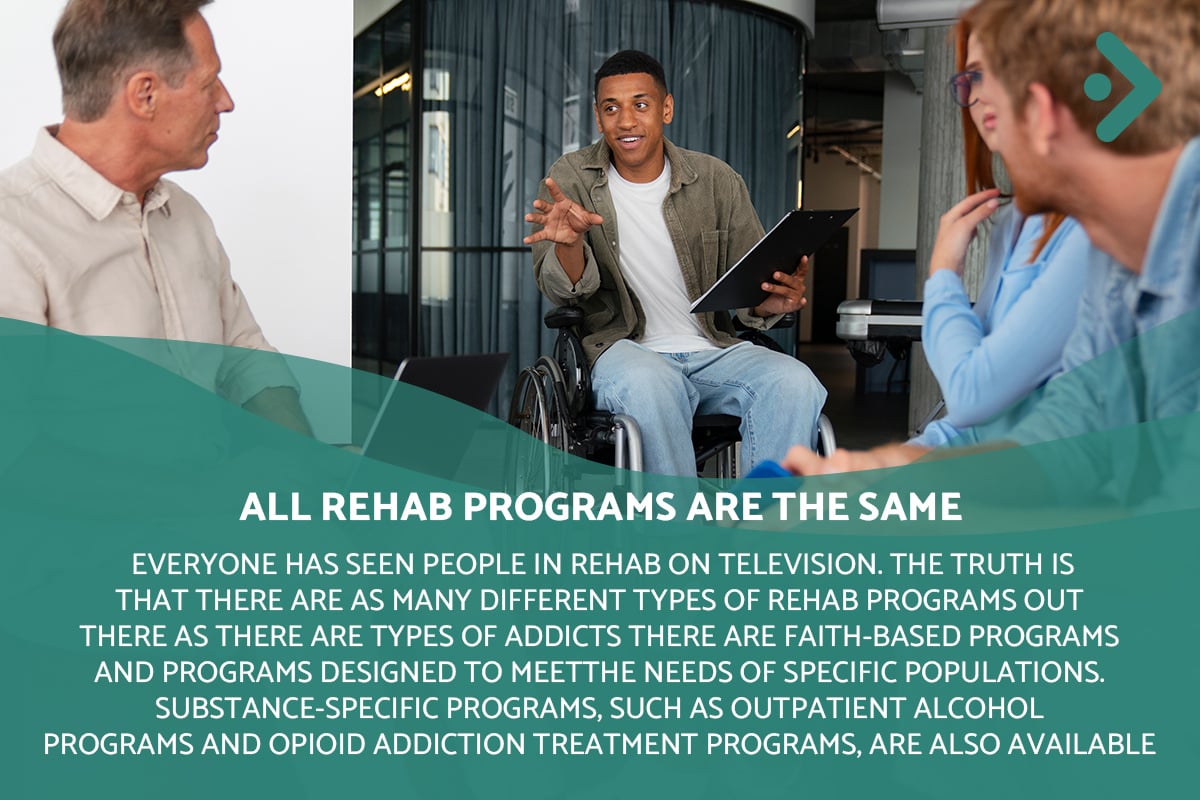
Not all treatment programs make use of the same therapeutic modalities or strategies. Just as many people have a stereotyped notion of what addiction looks like, people also tend to have one idea of what a rehab program is. Everyone has seen people in rehab on television. The truth is that there are as many different types of rehab programs out there as there are types of addicts. There are faith-based programs and programs designed to meet the needs of specific populations. Substance-specific programs, such as outpatient alcohol programs and opioid addiction treatment programs, are also available.
Myth 4: If You Relapse After Going to a Treatment Program, Trying Again Won’t Work
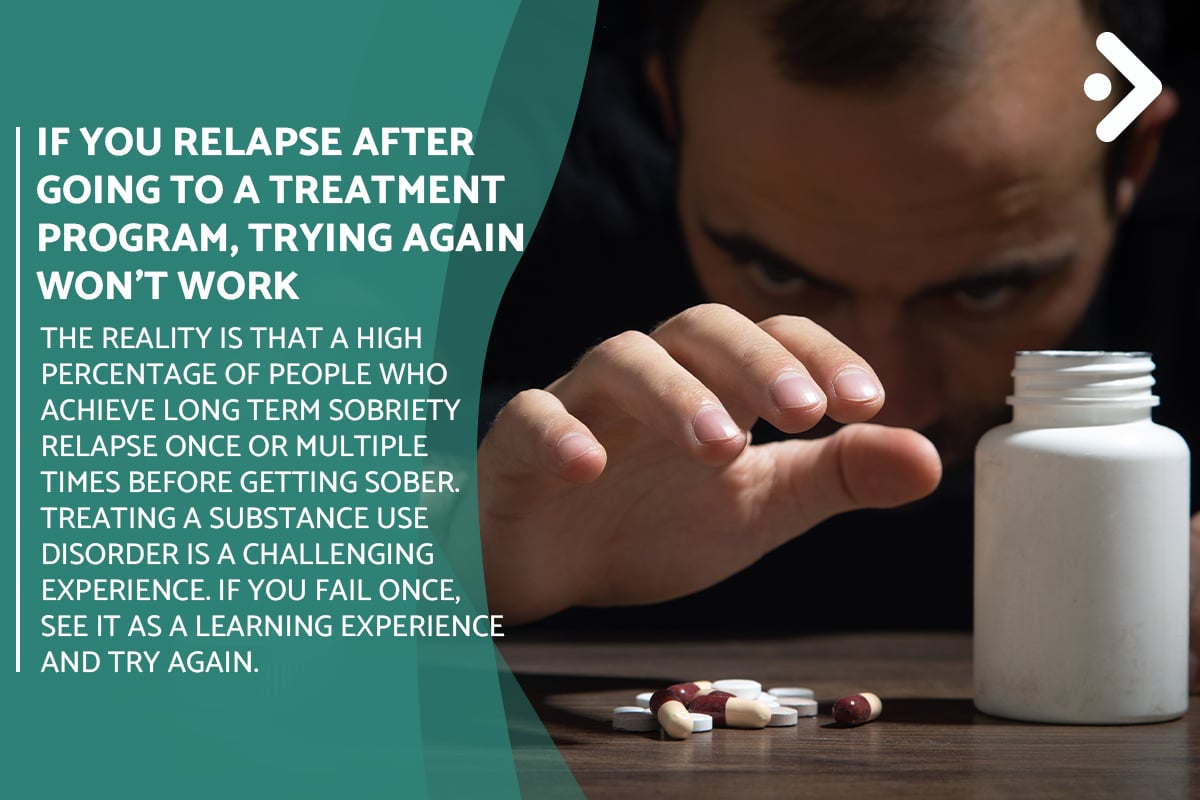
People are hard on addicts, often telling them to just “try harder” to stop using drugs on alcohol. However, no one is harder on themselves than addicts themselves. Individuals who relapse after attending rehab often believe that they are lost causes. The reality is that a high percentage of people who achieve long term sobriety relapse once or multiple times before getting sober. Treating a substance use disorder is a challenging experience. If you fail once, see it as a learning experience and try again.
Get Started With Nuview Treatment Center
Myth 5: Rehabs Permanently Cure Addiction
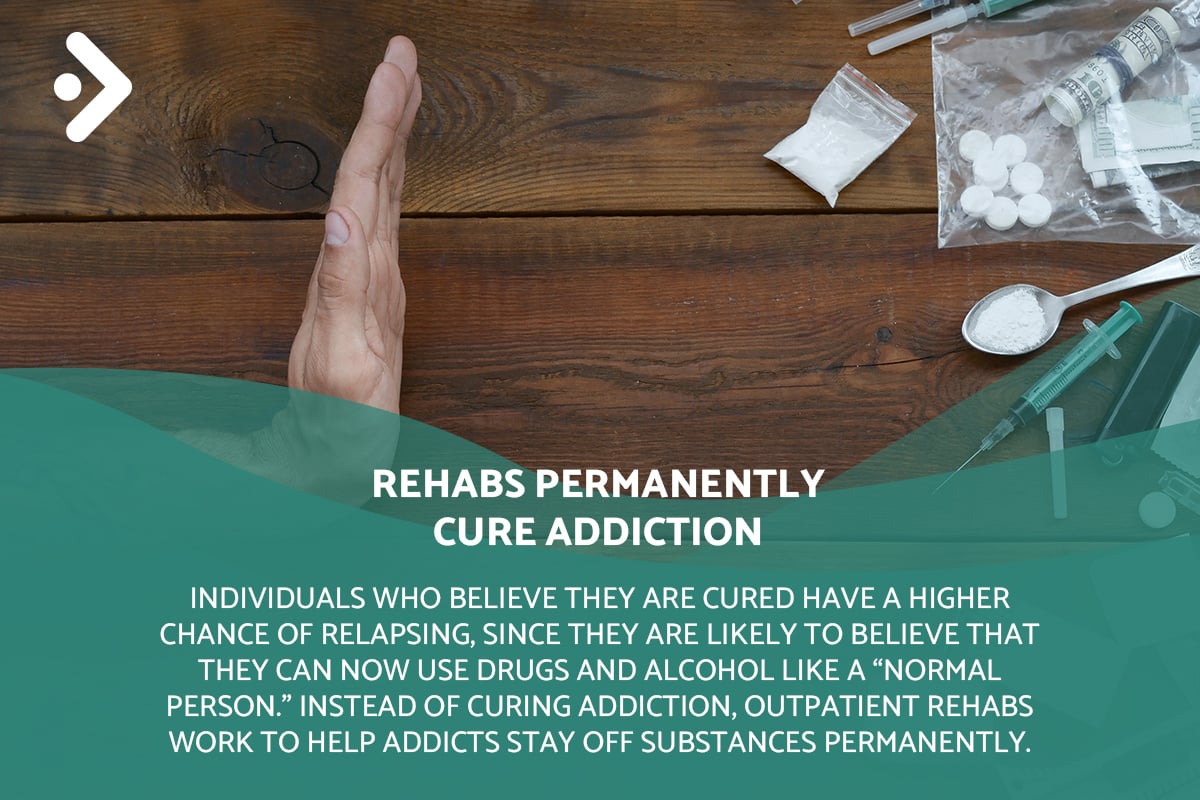
Substance use disorders are, unfortunately, not curable. They can, however, be managed. In fact, one of the most important things rehabs work to help addicts understand is that they cannot ever be entirely cured. Understanding this fact is, ironically enough, the key to staying sober. Individuals who believe they are cured have a higher chance of relapsing, since they are likely to believe that they can now use drugs and alcohol like a “normal person.” Instead of curing addiction, outpatient rehabs work to help addicts stay off substances permanently. Doing so puts their substance use disorder into remission and allows them to rebuild their lives.
Myth 6: Rehabs are not Effective for People with Mental Health Disorders
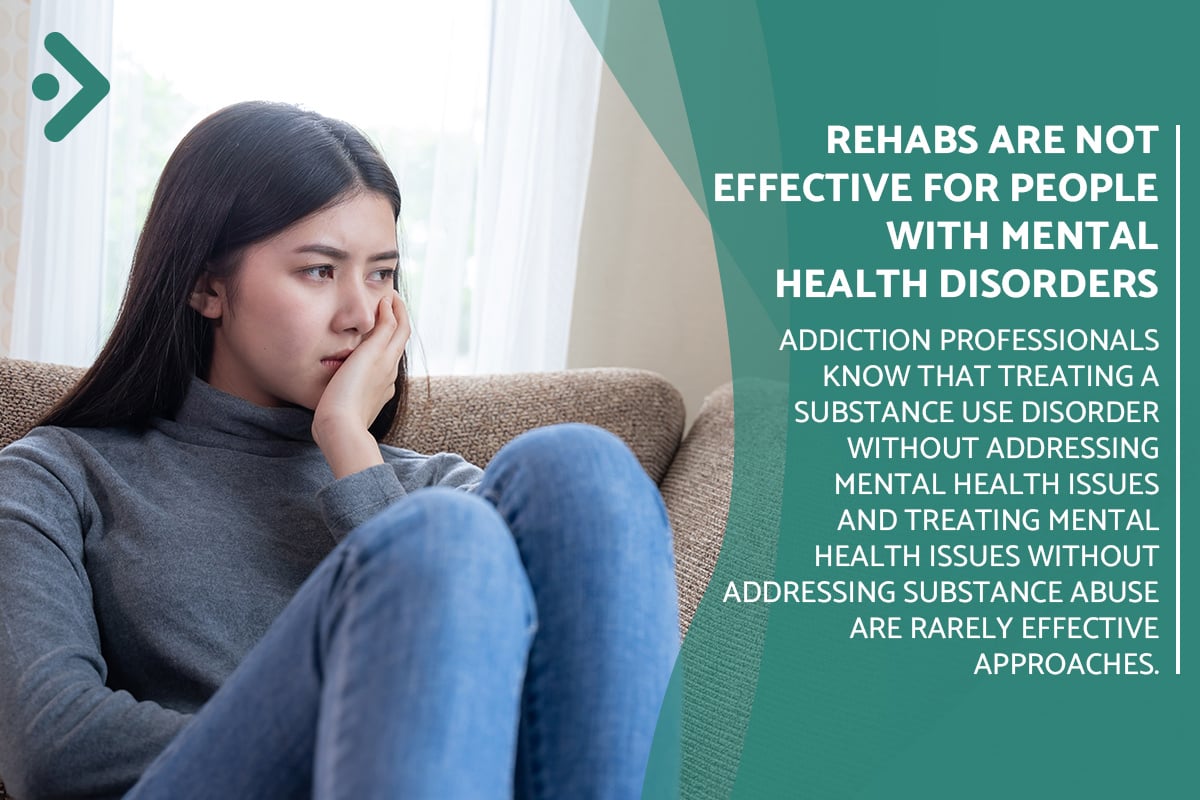
Individuals who suffer from mental health disorders like depression or anxiety often believe that they need drugs and alcohol. While it is true that these substances often do offer temporary relief for the painful symptoms of mental health disorders, drug and alcohol abuse tends to exacerbate these symptoms over time. Outpatient rehabs understand that addiction and mental illness often go hand in hand. Addiction professionals know that treating a substance use disorder without addressing mental health issues and treating mental health issues without addressing substance abuse are rarely effective approaches. The best drug and alcohol rehabs work to treat both conditions.
Myth 7: Chronic Relapsers Are Doomed
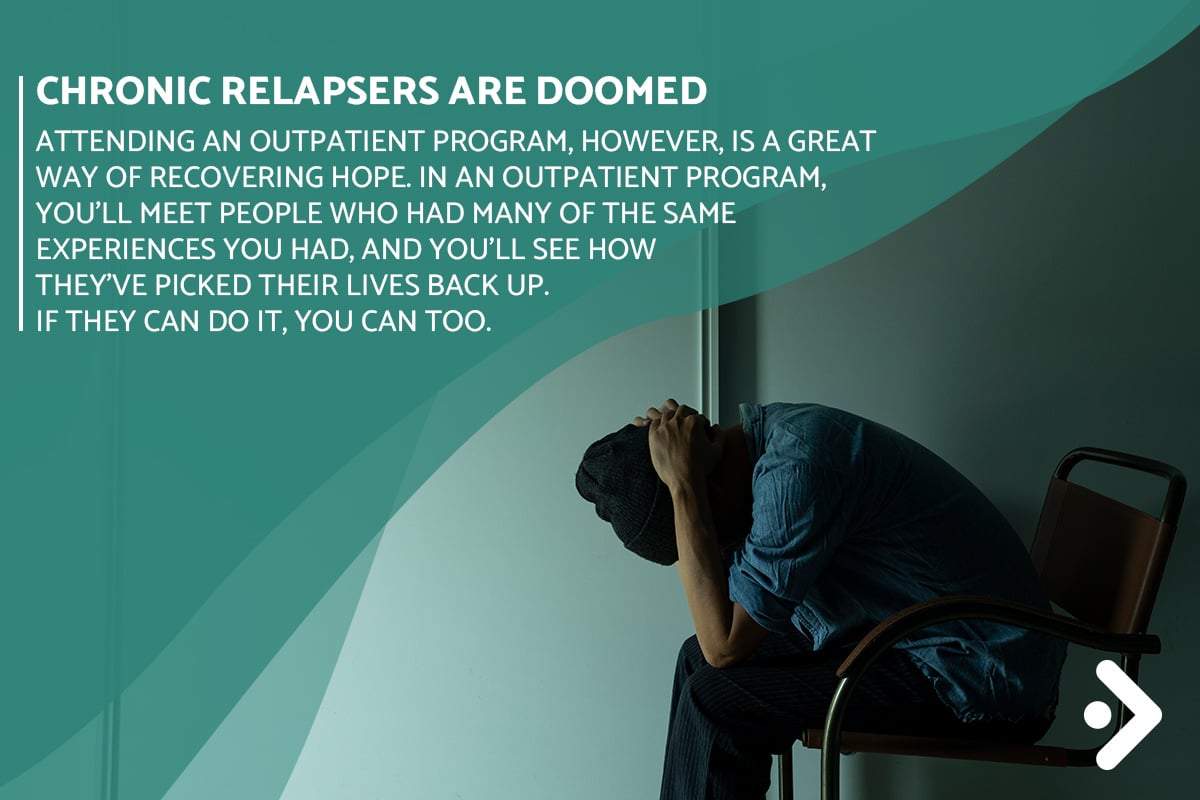
Addiction, by its very nature, makes people lose hope. Individuals who suffer from substance use disorders experience a wide range of devastating consequences, yet they are powerless to stop using drugs and alcohol on their own. The experience of trying to get sober and repeatedly failing can indeed be demoralizing. Attending an outpatient program, however, is a great way of recovering hope. In an outpatient program, you’ll meet people who had many of the same experiences you had, and you’ll see how they’ve picked their lives back up. If they can do it, you can too.
Myth 8: Drug Rehabs Are Not Effective
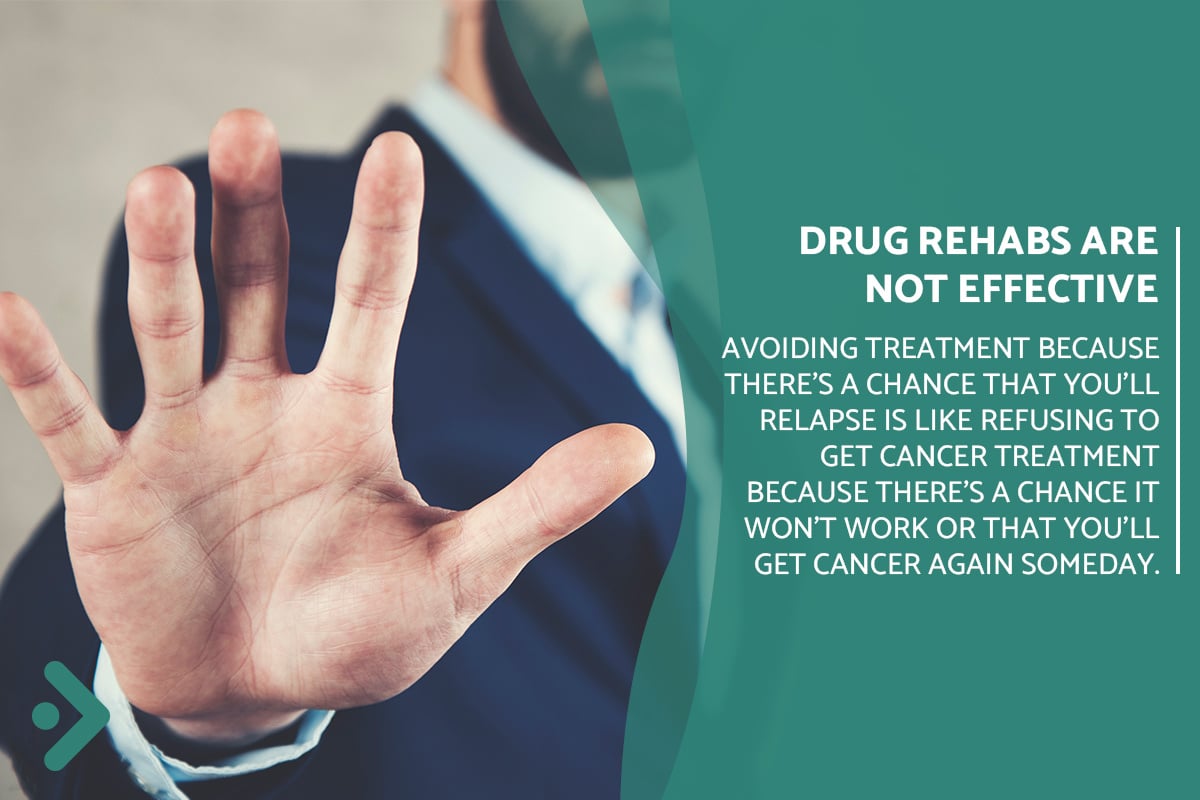 While it is not possible for an outpatient rehab to provide a 100% guarantee that you’ll stay sober for life, they can provide the best possible chances. Avoiding treatment because there’s a chance that you’ll relapse is like refusing to get cancer treatment because there’s a chance it won’t work or that you’ll get cancer again someday. Rehab programs make use of evidence-based treatment modalities that are well-researched. Even if you have dozens of relapses behind you, outpatient treatment programs provide the best chances of recovery.
While it is not possible for an outpatient rehab to provide a 100% guarantee that you’ll stay sober for life, they can provide the best possible chances. Avoiding treatment because there’s a chance that you’ll relapse is like refusing to get cancer treatment because there’s a chance it won’t work or that you’ll get cancer again someday. Rehab programs make use of evidence-based treatment modalities that are well-researched. Even if you have dozens of relapses behind you, outpatient treatment programs provide the best chances of recovery.
Treating Your Substance Use Disorder
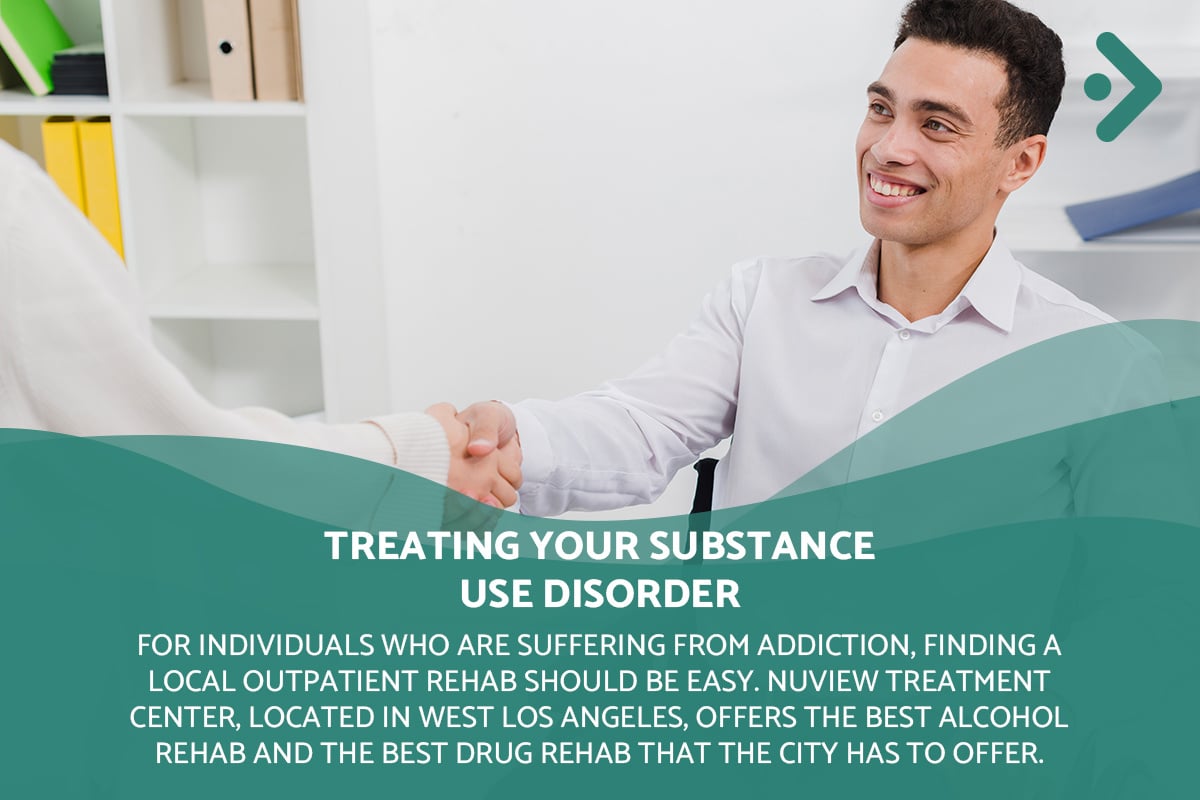
For individuals who are suffering from addiction, finding a local outpatient rehab should be easy. NuView Treatment Center, located in West Los Angeles, offers the best alcohol rehab and the best drug rehab that the city has to offer. This Los Angeles treatment center works with people suffering from substance abuse problems of all severities to help them get sober and rebuild their lives from the ground up. There’s no reason to suffer alone. If you’re ready to make a change, reach out today.
- Myth 1: You Need to Hit “Rock Bottom” Before Going to Rehab
- Myth 2: Some People Can Manage Their Addictions on Their Own
- Myth 3: All Rehab Programs are the Same
- Myth 4: If You Relapse After Going to a Treatment Program, Trying Again Won’t Work
- Myth 5: Rehabs Permanently Cure Addiction
- Myth 6: Rehabs are not Effective for People with Mental Health Disorders
- Myth 7: Chronic Relapsers Are Doomed
- Myth 8: Drug Rehabs Are Not Effective
- Myth 1: You Need to Hit “Rock Bottom” Before Going to Rehab
- Myth 2: Some People Can Manage Their Addictions on Their Own
- Myth 3: All Rehab Programs are the Same
- Myth 4: If You Relapse After Going to a Treatment Program, Trying Again Won’t Work
- Myth 5: Rehabs Permanently Cure Addiction
- Myth 6: Rehabs are not Effective for People with Mental Health Disorders
- Myth 7: Chronic Relapsers Are Doomed
- Myth 8: Drug Rehabs Are Not Effective
Get Help Today!
Everyone is Welcome Here and We All Have Your Back
Your healing journey deserves a personalized approach. At NuView, we integrate expertise in behavioral therapy, mental health, and substance use treatment to create a customized recovery plan tailored to your unique needs.
Connect with our Admissions Specialists today.
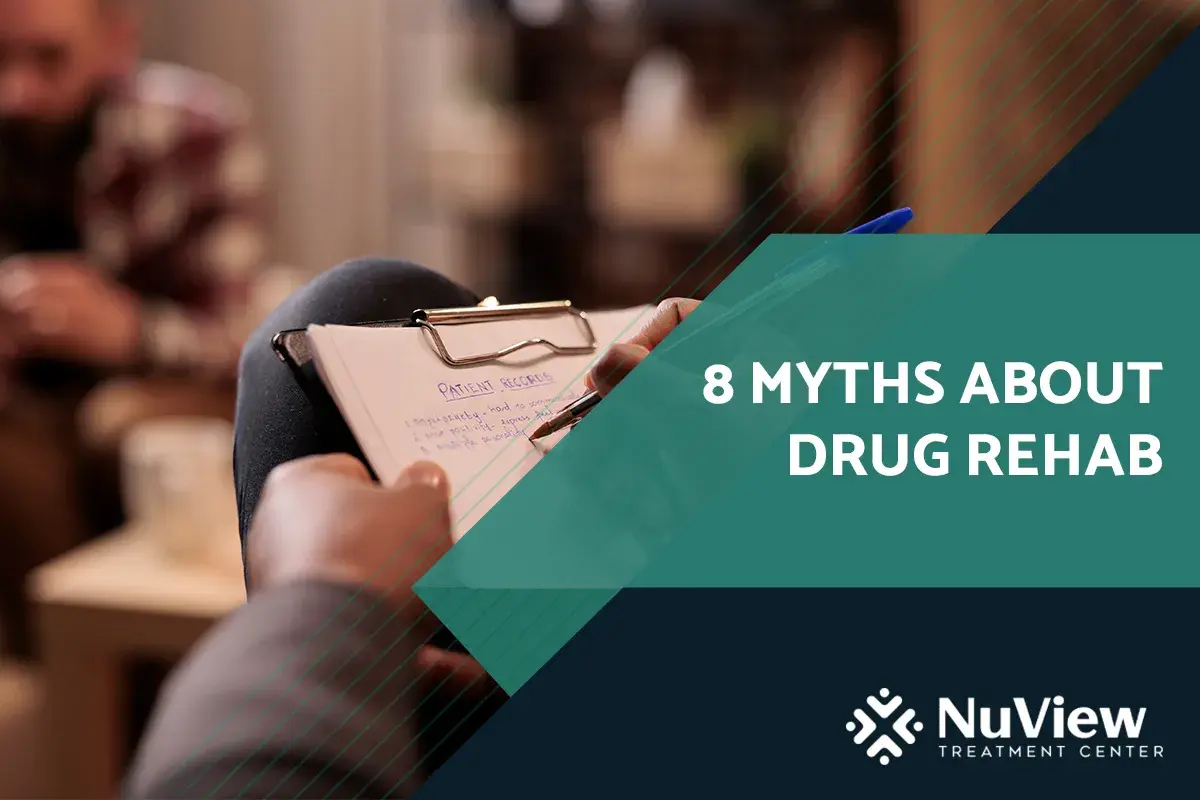

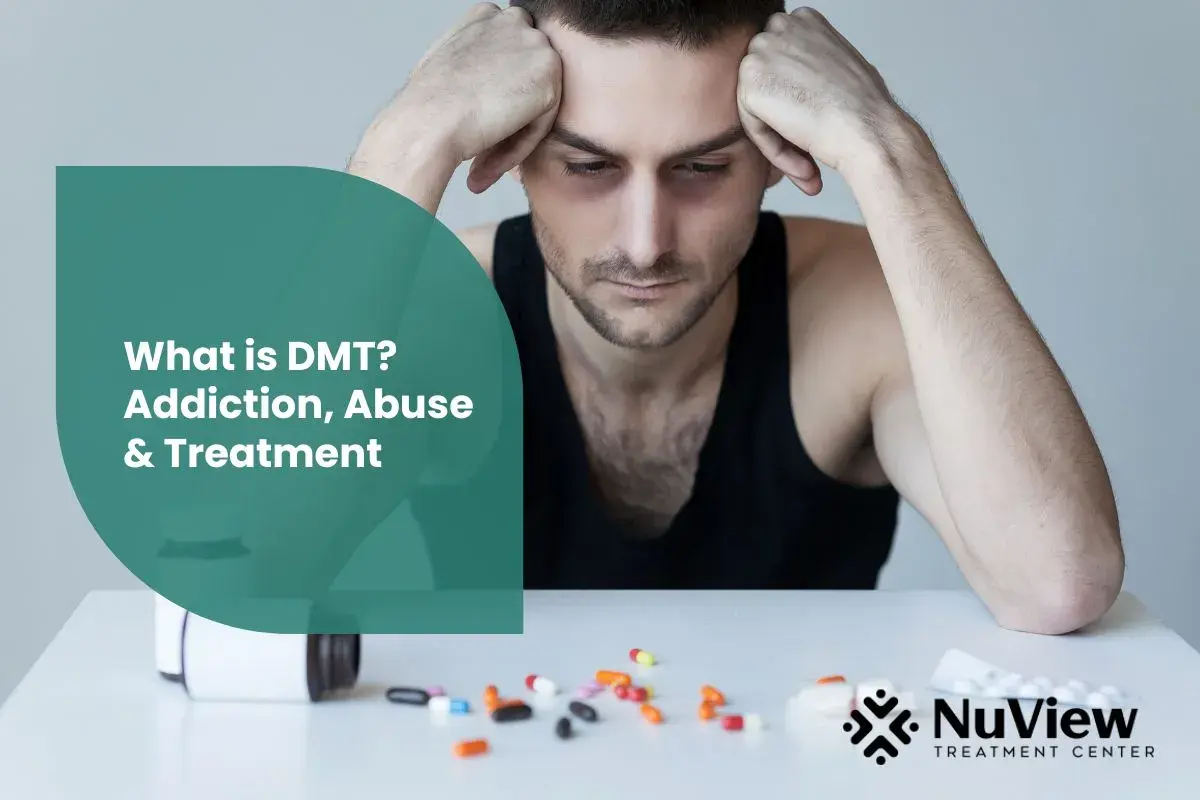




Written By
Dr. Ryan Peterson